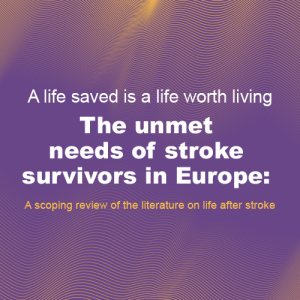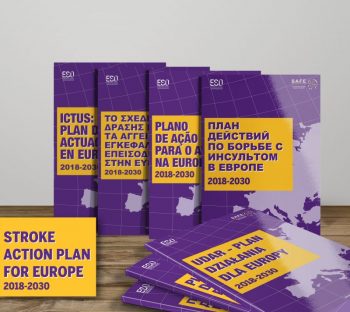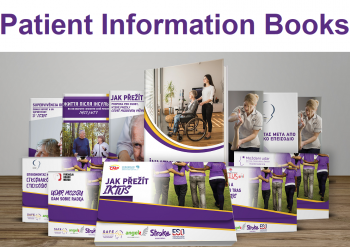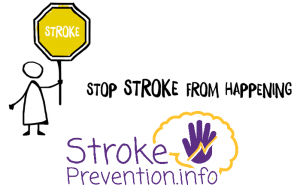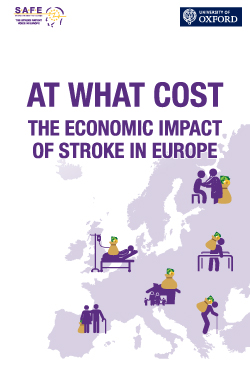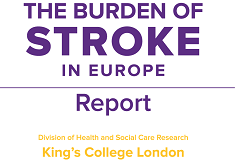
Feb 5, 2018
Too few patients with retinal infarction, or loss of blood flow in the eye, are evaluated for stroke risk or seen by a neurologist, putting them at increased risk for another stroke, according to preliminary research presented at the American Stroke Association’s International Stroke Conference 2018, a world premier meeting dedicated to the science and treatment of cerebrovascular disease for researchers and clinicians. (more…)

Feb 2, 2018
A diet created by researchers at Rush University Medical Center may help substantially slow cognitive decline in stroke survivors, according to preliminary research presented on Jan. 25 at the American Stroke Association’s International Stroke Conference 2018 in Los Angeles. The findings are significant because stroke survivors are twice as likely to develop dementia compared to the general population.
The diet, known as the MIND diet, is short for Mediterranean-DASH Diet Intervention for Neurodegenerative Delay. The diet is a hybrid of the Mediterranean and DASH (Dietary Approaches to Stop Hypertension) diets. Both have been found to reduce the risk of cardiovascular conditions such as hypertension, heart attack and stroke. (more…)

Feb 2, 2018
First published on ScienceDaily
An experimental therapy being tested by University of Alberta scientists that targets the spinal cord may one day be key to spurring on enhanced recovery for stroke victims.
By injecting a drug called chondroitinase ABC (ChABC) into the spinal cord of rats 28 days after they suffered a stroke, researchers found they were able to enhance recovery by inducing amplified rewiring of circuits connecting the brain to the spinal cord. When they also combined the spinal therapy with rehabilitative training, recovery amplified further. (more…)
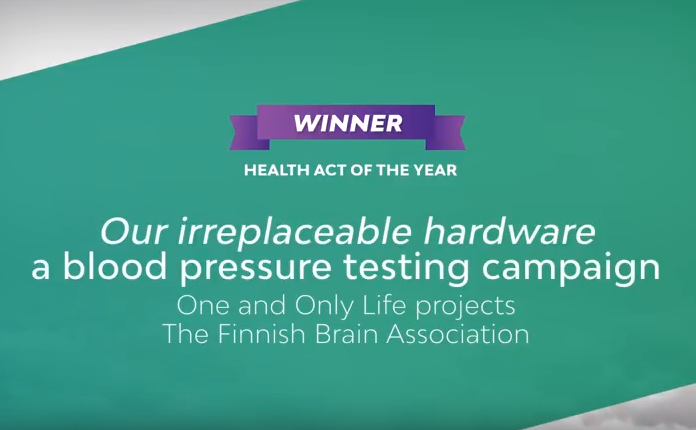
Jan 29, 2018
Tamro, Finland’s leading service provider and distributor of pharmaceuticals and health products, pronounced winners of The Health Awards 2018. The judges voted the Finnish Brain Association’s blood pressure campaign as the Health Act of the Year. Nightingale Health’s blood analysis for the prevention of cardiovascular diseases was selected as the Health Innovation of the Year. As stated on their website, with The Health Awards, Tamro rewards work that has effectively promoted the health of Finns, as well as brings promising innovations to the spotlight. Both winners received a prize of € 5 000. (more…)

Jan 29, 2018
IMPERIAL NEWS; by Ryan O’Hare, Imperial College London.
A new multi-million Euro initiative funded by the European Commission has been set up to help prevent stroke in patients with existing conditions
The €6.9m project is aimed at patients with atrial fibrillation (AF), a common heart condition which causes irregular and abnormally fast heartbeat, who have previously had a stroke caused by bleeding in the brain (termed intracerebral haemorrhage or ICH).
The Prevention of Stroke in intracerebral hermorrhage survivor with Atrial Fibrillation (PRESTIGE-AF) brings together scientists and clinicians across Europe with the goal of reducing the risk of further stroke in this group of patients. (more…)

Jan 26, 2018
The proportion of a rare type of stroke, called spontaneous subarachnoid hemorrhage or sSAH, is increasing among pregnant women, according to preliminary research presented at the American Stroke Association’s International Stroke Conference 2018, a world premier meeting dedicated to the science and treatment of cerebrovascular disease for researchers and clinicians.
Spontaneous SAH is an abnormality within the brain’s arteries that weaken and leads to ruptures in the blood vessels on the surface of the brain, causing bleeding between the membranes surrounding the brain. Spontaneous SAH refers to hemorrhage that occurs without trauma to the head or neck. (more…)




